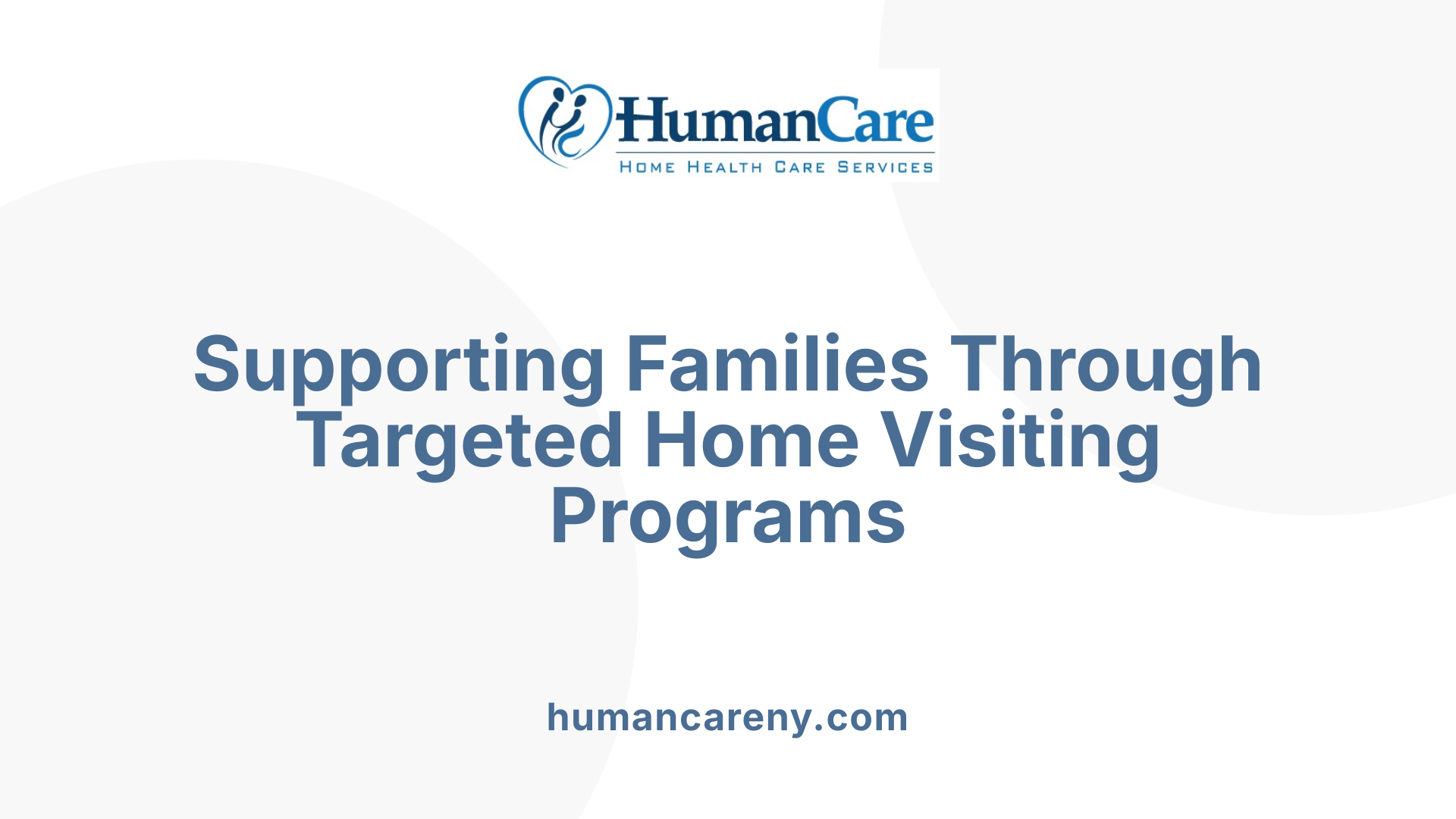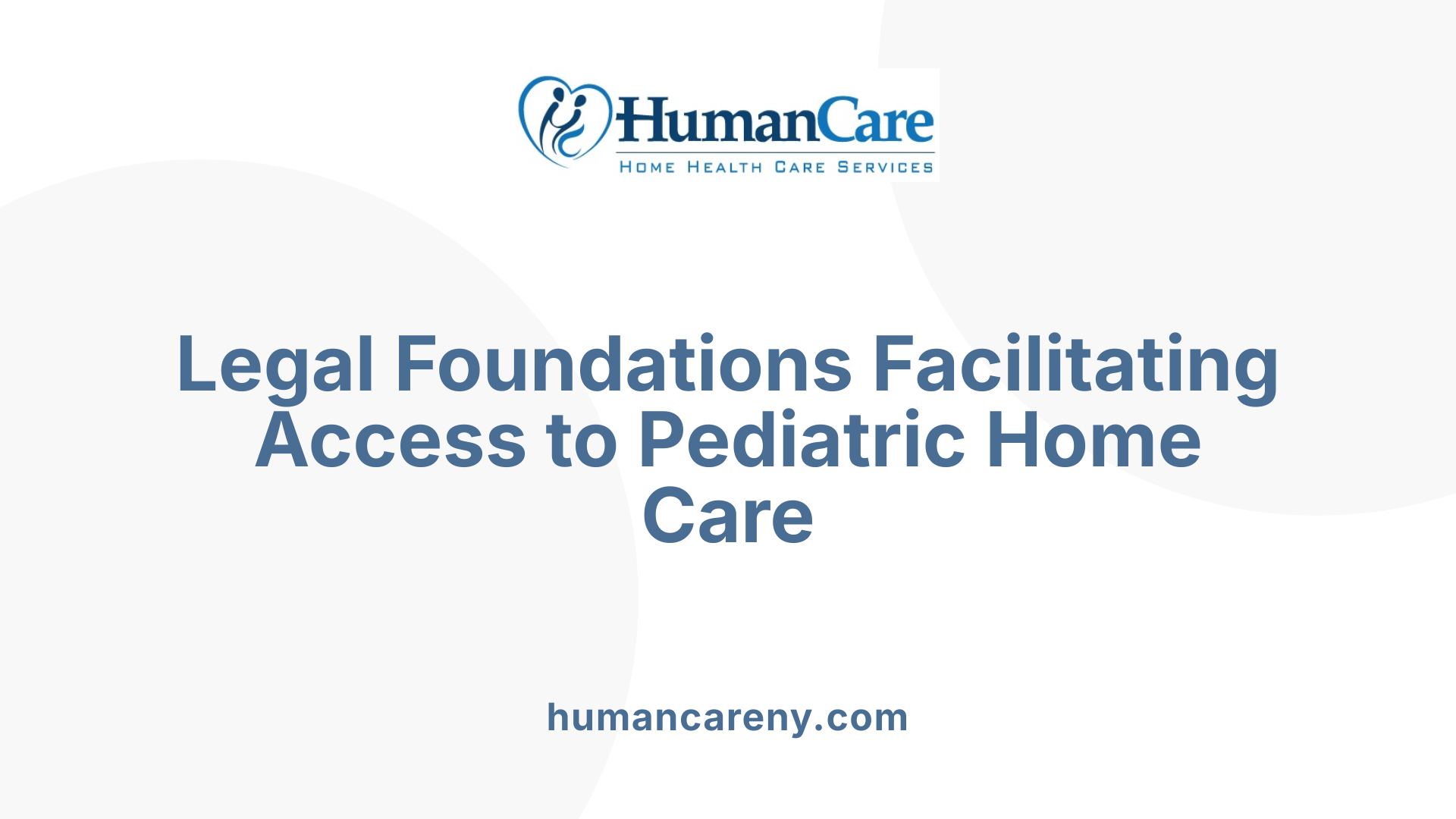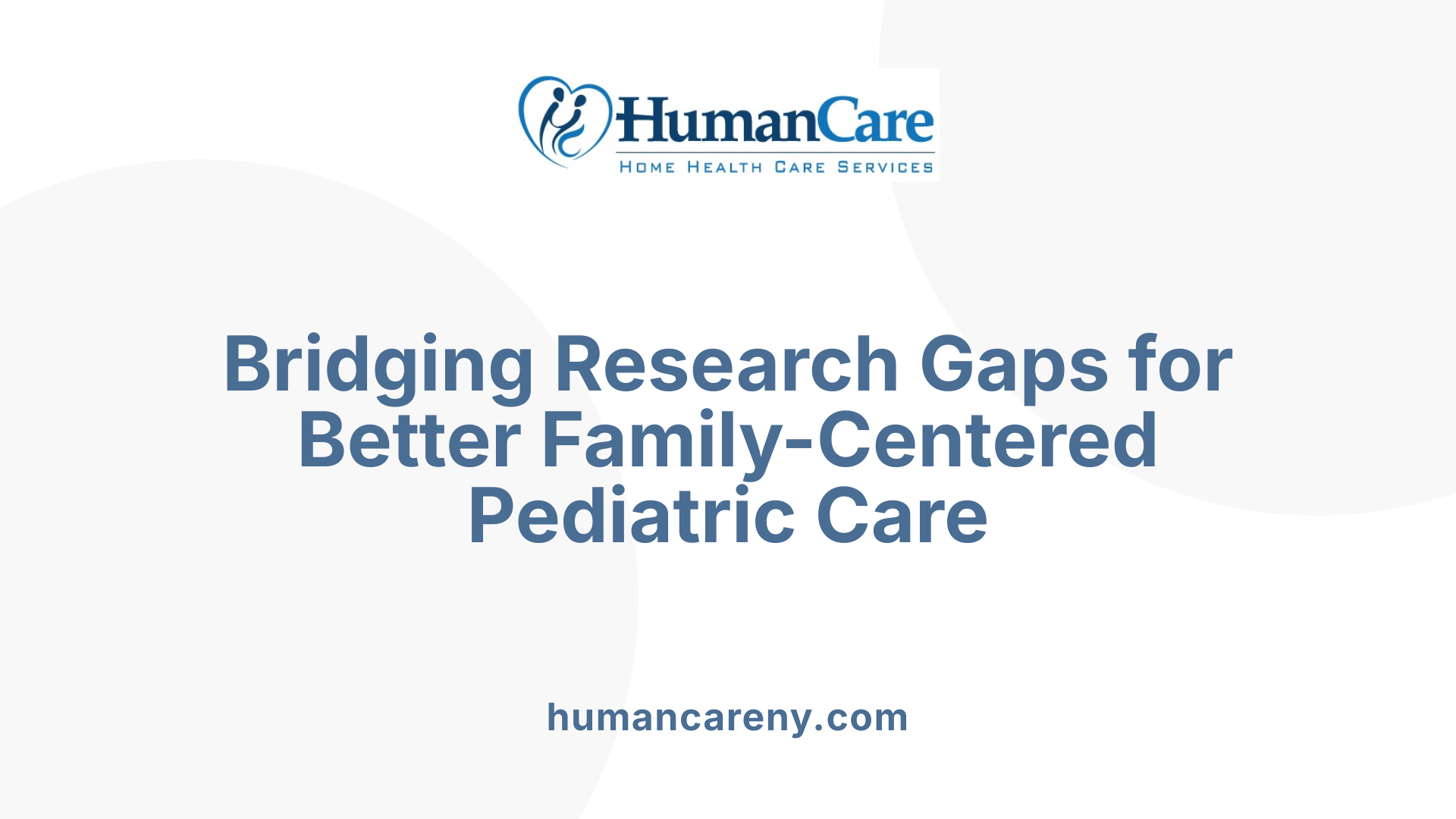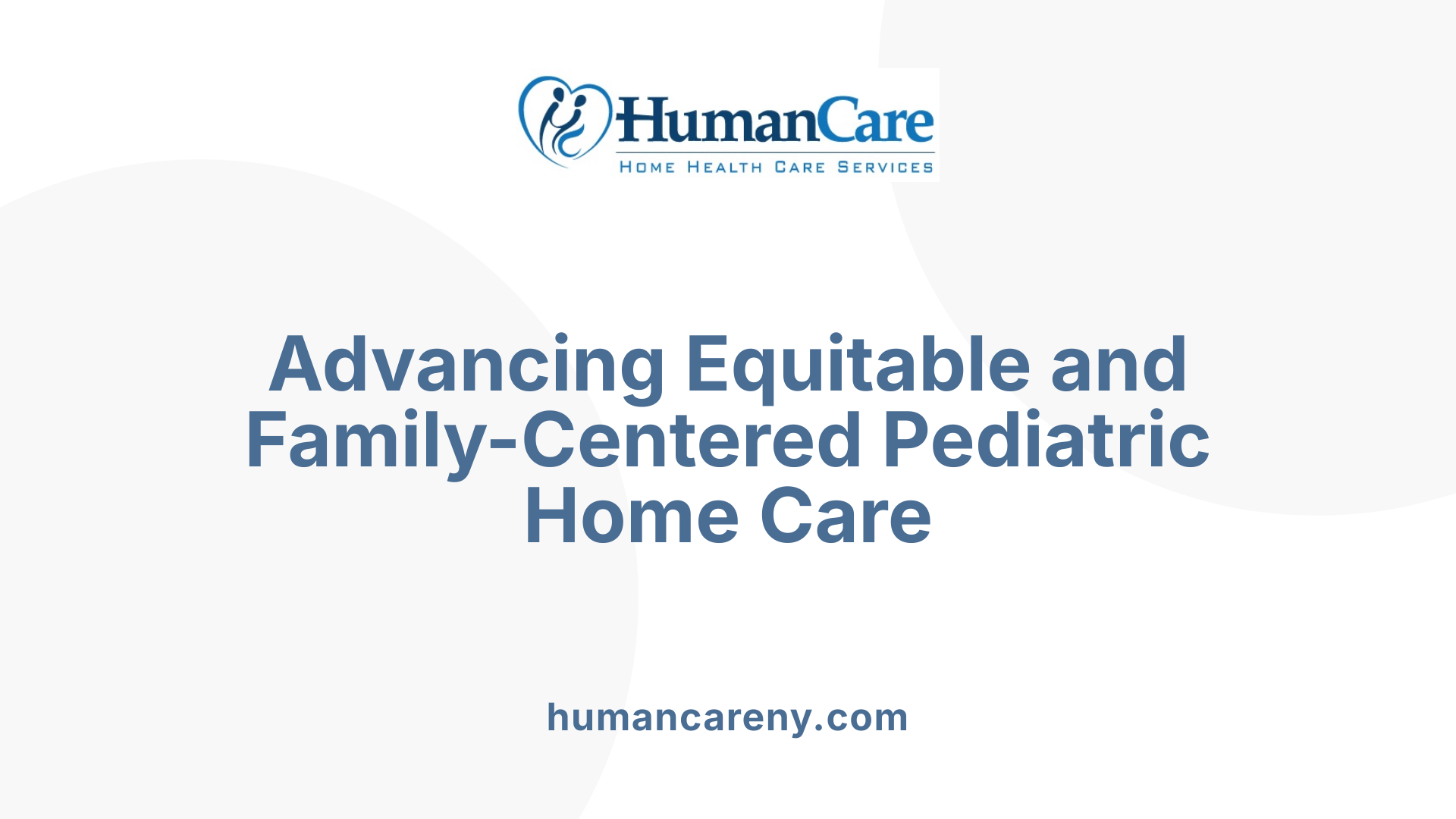Understanding the Stress Landscape in Families Caring for Children with Medical Needs
Families caring for children with disabilities or complex medical conditions often face significant physical, emotional, and financial challenges. Pediatric home health care has emerged as a critical service aimed at alleviating these burdens by providing specialized care in the child's natural home environment. This article explores how pediatric home care impacts family stress, the factors influencing caregiving stress, and the pathways through which home-based care can promote healthier family dynamics and better outcomes for both children and caregivers.
The Growing Need for Pediatric Home Health Care
Rise in Children with Medical Complexity and Disabilities
The number of children with medical complexity (CMC) and children with disabilities (CWD) in the United States has seen a notable increase. Research shows that approximately 1 in 20 children discharged from hospitals are sent home with specialized medical equipment or require home health care (HHC) services. This growing population underscores an increased need for tailored healthcare delivered outside traditional clinical settings.
Hospital Discharge Trends Involving Specialized Home Medical Equipment
Advances in medical technology and care practices have enabled more children with complex health conditions to transition from hospital to home. The discharge process increasingly involves detailed planning to ensure families receive the necessary equipment and skilled support to manage care. This approach aims to reduce hospital days and associated healthcare costs, while also supporting children’s comfort and development in their natural environments.
The Role of Pediatric Home Health Care in Chronic Condition Management
Pediatric home health care plays a critical role in managing chronic illnesses, disabilities, and acute medical needs for children at home. Delivering skilled nursing, therapy, and medical monitoring within the home setting helps optimize health outcomes. High-quality HHC has been linked to fewer hospitalizations and emergency visits, easing the emotional and financial burden on families. However, disparities in access to these services remain a challenge, highlighting the importance of supportive legal and policy frameworks to guarantee children’s rights to home-based care.
How Pediatric Home Health Care Reduces Family Stress
Benefits of Delivering Care at Home versus Hospital-Based Care
Providing health care services in the home environment offers several advantages over hospital-based care, particularly for children with disabilities (CWD) and children with medical complexity (CMC). Home health care enables families to manage chronic conditions and acute illnesses in a familiar, comfortable setting, reducing disruptions to daily routines. This approach minimizes exposure to hospital environments, which can be stressful for both children and their caregivers.
Reduction in Hospital Days and Healthcare Costs
Data indicate that pediatric home health care is linked with fewer hospital days and lowered healthcare expenses. By supporting continuous care at home with specialized equipment and professional services, families can avoid repeated hospital admissions. These reductions not only ease financial burdens but also lessen the emotional toll associated with frequent hospital visits, thereby decreasing overall family stress.
Family-Centered Care Approach and Its Role in Promoting Wellbeing
A family-centered care model underpins pediatric home health care, prioritizing the needs and preferences of both the child and their family. This approach involves caregivers as partners in care delivery, fostering improved communication and personalized support. It helps address parental stress by providing education, emotional support, and coordination of resources, which combat social isolation and empower families. Integrating care within the home environment thus promotes healthier family dynamics and enhances wellbeing for both children and caregivers.
Challenges Faced by Families of Children with Complex Medical Needs

What physical and psychological strains do caregivers of children with complex medical needs experience?
Caregivers, often family members or close friends, who provide care for children with chronic illnesses or medical complexity face significant physical and psychological strains. This caregiving is characterized as a chronic stressor due to its demanding nature over extended periods. Psychological impacts include heightened distress and risk of depression, while physical consequences can involve impaired health habits and physiological changes, increasing illness susceptibility and mortality risk.
How do financial burdens and unmet healthcare needs affect these families?
Families managing the care of children with complex medical needs often experience substantial financial strain, intensified when access to necessary home health care (HHC) is insufficient. Delays in receiving care and unmet health requirements can lead to increased hospitalizations and emergency visits, amplifying both financial burdens and family stress.
In what ways do the intensity and duration of caregiving affect family stress?
The duration and intensity of caregiving contribute significantly to the degree of stress on families. Long-term, intensive caregiving especially in cases like dementia or severe physical disabilities tends to escalate stress and negative health outcomes for caregivers. Factors such as the child's behavioral and cognitive challenges also influence the severity of strain, alongside caregiver characteristics including age, sex, and socioeconomic status.
Families of children with medical complexity navigate a challenging landscape of physical, emotional, and financial demands. Understanding these challenges is crucial for developing supportive interventions that alleviate stress and promote well-being within these vulnerable households.
The Psychological Impact of Caregiving on Parents and Families
How does caregiving affect the psychological health of parents and families?
Caregiving, particularly for individuals with chronic illnesses like dementia, places a significant physical and psychological burden on family members and friends involved in providing care. This work often leads to psychological distress and depression, both of which are common adverse effects faced by caregivers. The stress related to caregiving is not only immediate but can evolve into long-term health challenges.
What is the trajectory from psychological distress to chronic illness in caregivers?
The strain experienced by caregivers often follows a cascade effect: initial psychological distress and depression can lead to impaired health habits and physiological changes. Over time, these changes increase the risk for serious illnesses and even early mortality. Although the detailed causal pathways need further longitudinal research, the evidence clearly points to chronic stress as a significant health threat for caregivers.
Which factors influence the health outcomes of caregivers?
Several elements impact the severity of caregiving-related health effects:
- Care recipient's condition: Behavioral problems, cognitive impairments, and functional disabilities can heighten caregiver stress.
- Caregiving intensity: The duration and effort required in caregiving are major stress contributors.
- Demographics: Age, sex, and socioeconomic status of the caregiver play critical roles in shaping health risks.
Understanding these factors is vital for designing support frameworks that address the diverse needs of caregiving families.
Why is addressing caregiver well-being essential?
Families providing informal care represent an essential health resource by supporting older or disabled relatives and alleviating healthcare system costs. Addressing their psychological and physical health needs helps sustain this caregiving role and improves outcomes for both caregivers and care recipients. Tailored interventions that consider individual circumstances, including depression and social support, are key to mitigating these adverse effects.
The Role of Home Visiting Programs in Supporting Families

How do home visiting curricula focus on parenting attitudes and practices?
Home visiting programs are designed to support families by engaging directly in their natural environments. These programs typically vary in curricula, but many share a common goal: enhancing parenting attitudes and practices. They provide education, resources, and support intended to improve the ways parents interact with and nurture their children. This hands-on approach allows professionals to tailor support to the unique needs and circumstances of each family.
What evidence shows that home visiting programs reduce parenting stress?
Research reflects small yet significant positive effects from some home visiting programs on parenting attitudes and behaviors. Occasionally, these programs also achieve reductions in parenting stress. For example, brief and targeted interventions such as SafeCare and Family Connects have demonstrated meaningful decreases in parenting stress across various studies. These findings highlight the potential of certain home visiting approaches to alleviate some of the daily pressures faced by parents.
What limits some home visiting programs from effectively reducing stress?
A notable limitation is that many home visiting programs do not explicitly incorporate stress-reduction activities into their content. This lack of focused stress management components may restrict their overall effectiveness in easing parenting stress. Without direct strategies addressing mental health and stress, families might not receive the full spectrum of support needed to manage the emotional burdens of parenting. Therefore, programs that integrate specific stress-reduction techniques tend to perform better in helping parents cope.
Targeted Interventions That Effectively Reduce Parenting Stress
Brief Programs Like SafeCare and Family Connects
Brief home visiting programs such as SafeCare and Family Connects have shown promising results in significantly reducing parenting stress. Unlike longer, comprehensive programs, these targeted, concise interventions focus on specific needs and skills, producing measurable positive outcomes more consistently. Their design allows for concentrated support that can quickly address stressors faced by parents.
Importance of Tailored Interventions for Mental Health and Social Support Needs
Recent research highlights that customizing home visiting services to address the unique challenges faced by families—especially those with mental health difficulties or limited social support—enhances intervention effectiveness. Tailored approaches often incorporate mental health screenings and therapy access, which help address underlying causes of stress, such as depression and social isolation.
Research Findings on Prenatal Care Coordination Lowering Stress Postpartum
A study from an urban Midwest health department found that brief prenatal care coordination services could reduce parenting stress during early postpartum periods, particularly for mothers exhibiting higher depression scores. These findings suggest that timely and targeted prenatal interventions may play a critical role in mitigating the rising trend of parenting stress in low-income populations during the first year after childbirth.
Addressing Mental Health and Social Support in Home Care
How are depression and mental health screened during home visits?
Home visiting programs routinely include screening for depression and other mental health challenges as a foundational practice. Early identification of these issues allows for timely intervention, which is critical given that depressive symptoms strongly predict higher parenting stress. These screenings help to tailor support by recognizing vulnerable parents who might otherwise remain underserved.
What role does psychotherapy and mental health service access play in these programs?
Many evidence-based home visiting models integrate psychotherapy directly into their service teams. This dual approach not only provides on-site mental health support but also facilitates access to broader mental health services. Addressing trauma, depression, and other psychological needs within the home visit framework enhances the overall effectiveness of the program, particularly for families facing significant life stressors.
How do home visiting programs help combat parental social isolation and emotional stress?
Beyond mental health screening and treatment, home visits emphasize reducing social isolation—a critical factor contributing to parental stress. By establishing consistent, supportive relationships, home visitors offer emotional support and practical parenting guidance. This helps alleviate feelings of isolation and overwhelm, promoting healthier family dynamics. The personalized care model strengthens parent-child interactions and builds resilience within families.
Together, these mental health and social support strategies embedded in home care services create a comprehensive network of support that targets both emotional and practical aspects of parenting. This holistic approach is essential for improving parental wellbeing and fostering positive outcomes in vulnerable families.
Legal and Policy Frameworks Supporting Pediatric Home Care Access

Medicaid Waivers and Access to In-Home Pediatric Care
Medicaid waivers play a crucial role in enabling children with disabilities and complex medical needs to receive home health care services. These waivers allow states to provide tailored in-home care options beyond standard Medicaid coverage, ensuring that children discharged from hospitals can access the specialized care they require in their own homes. This flexibility is vital for supporting family-centered care and reducing hospital stays.
Americans with Disabilities Act Implications
The Americans with Disabilities Act (ADA) also underpins children’s rights to receive health care in home settings. The ADA mandates nondiscrimination and reasonable accommodations in health-related services, supporting efforts to provision adequate pediatric home health care. It serves as a legal foundation ensuring that children with disabilities are not unjustly denied access to necessary home-based medical support.
Importance of Policy in Ensuring Equitable Home Care
Effective legal and policy frameworks like Medicaid waivers and the ADA are essential to promote equitable access to pediatric home health care. These policies address disparities in care availability and help mitigate barriers related to socioeconomic status or geographic location. Continued policy development is crucial to expand access, improve care quality, and reduce the family and healthcare system burdens associated with pediatric disability and medical complexity.
Research Gaps and the Need for Family-Centered Care Models

Lack of Optimal Care Models and Workforce Training
Despite the increasing reliance on pediatric home health care (HHC) for children with disabilities and complex medical needs, there remains a significant knowledge gap regarding the best models of care. Current research has not conclusively identified which approaches optimize outcomes for this vulnerable population. Additionally, workforce training is an area needing attention to ensure that healthcare providers are equipped with the skills necessary to deliver high-quality, specialized home-based services.
Disparities in Access and Safety Concerns
Access to pediatric HHC remains uneven, with disparities linked to socioeconomic status and geographic location. These gaps contribute to delays in care, increased hospitalizations, emergency visits, and unmet healthcare needs, all of which amplify family stress and financial burdens. Safety concerns regarding care delivery in home settings also pose challenges, underscoring the need for research to develop protocols that protect children and support families effectively.
Importance of Partnership with Caregivers and Data Sharing for Policy Guidance
Strong collaboration between healthcare providers and family caregivers is crucial for successful home care delivery. Family-centered care models emphasize such partnerships to tailor services that meet individual needs. Furthermore, comprehensive data sharing between stakeholders is essential to inform policy decisions and improve care quality. Research agendas prioritize these factors to support equitable, effective, and timely home health care for children.
| Issue | Description | Impact on Pediatric HHC |
|---|---|---|
| Care Models | Undefined best practices and care strategies | Limits quality and consistency of care |
| Workforce Training | Need for specialized skill development | Affects provider competency and service delivery |
| Access Disparities | Unequal availability of services based on socioeconomic factors | Leads to increased hospital use and family stress |
| Safety Concerns | Challenges in maintaining care standards at home | Raises risks to patients and care quality |
| Caregiver Partnership & Data | Emphasis on collaboration and information exchange | Supports personalized care and informs effective policymaking |
Positive Outcomes and Strengths Gained Through Caregiving
Improved self-esteem and skill acquisition
Caregiving, despite its well-documented challenges, often leads to personal growth for those who provide care. Many caregivers report an increase in self-esteem as they develop new skills in managing complex health needs and navigate healthcare systems. These competencies not only enhance their effectiveness in caregiving but also bolster their confidence in handling other life challenges.
Strengthened family relationships
The caregiving experience can deepen bonds among family members. Providing care often fosters a renewed sense of purpose and connection, allowing caregivers and care recipients to develop closer, more meaningful relationships. This strengthened family dynamic can act as a profound source of emotional support, helping families cope with the strains of chronic illness or disability.
Balancing caregiving stress with rewarding experiences
While caregiving can produce physical and psychological stress, many find the role equally rewarding. Positive effects can balance the adversities through improved feelings of purpose and satisfaction. Transitions into caregiving often elevate stress levels, but as caregivers adjust, they may experience gains in emotional resilience and well-being. Recognizing these benefits is crucial to supporting caregivers effectively, particularly in pediatric home health care settings where families face demanding yet meaningful caregiving duties.
Impact of the COVID-19 Pandemic on Family Stress and Home Care Needs
Increased Parental Stress During the Pandemic
The COVID-19 pandemic has markedly intensified parental stress levels across the United States. Nearly half of parents report experiencing their stress as completely overwhelming on most days, a trend that has persisted and amplified over the last decade. The pandemic added to this burden by increasing financial worries and social pressures.
Greater Childcare and Work Pressures
Parents found themselves navigating heightened demands, balancing increased parenting responsibilities alongside work duties from home. These dual pressures complicated family dynamics and intensified emotional strain. The disruption of regular childcare and schooling further increased caregiving demands on parents, leading to greater stress levels.
Heightened Importance of Home Visiting and Support Programs
In response to escalating stress and complex family needs during the pandemic, early childhood home visiting programs became more critical than ever. These programs offer vital support through mental health screening, nurturing parent-child relationships, and resource connection. Home visiting's focus on vulnerable populations—including low-income families, adolescent parents, and families facing challenges like homelessness or substance use—has helped mitigate the pandemic's toll.
Programs incorporating mental health services and addressing social isolation have been particularly essential in reducing family stress. This enhanced support structure underscores the necessity of accessible, family-centered home care and community services during and beyond public health crises.
Future Directions: Ensuring Equitable and Effective Pediatric Home Care

Striving for Safe, Timely, and Family-Centered Home Care
Pediatric home health care (HHC) is critical for children with disabilities and those with medical complexity, providing essential support directly in their home environments. As this population grows, ensuring care is safe, timely, and centered around family needs is paramount. Family-centered care recognizes caregivers as partners and decision-makers, emphasizing respect for family preferences and enhancing the overall caregiving experience.
Importance of Robust Data and Research to Guide Improvements
Current knowledge gaps highlight the need for expanded research to optimize pediatric HHC models. This includes workforce training enhancement, refining care delivery methods, and improving safety outcomes. Strong data systems and partnership-driven research are crucial for evaluating service effectiveness and informing policies. Emphasizing rigorous data sharing and performance measures will enable continuous quality improvement while ensuring that care adaptations meet family priorities.
Addressing Disparities and Amplifying Caregiver Voices
Equitable access presents a significant challenge, with many families facing barriers that compound stress and worsen health outcomes. Future efforts must focus on identifying and mitigating disparities in access and quality. Amplifying caregiver perspectives fosters trust and ensures services are responsive to the unique challenges faced by families. Collaborating with families will facilitate culturally competent, accessible care that mitigates health inequities and promotes better outcomes for children and their caregivers.
Transforming Family Lives Through Pediatric Home Care
Pediatric home health care stands as a cornerstone for reducing family stress among those caring for children with complex medical needs and disabilities. By delivering specialized services within the home, it not only decreases hospital visits and financial burdens but also promotes healthier family dynamics and caregiver wellbeing. While challenges remain—such as disparities in access and the need for more refined care models—ongoing research and policy improvements hold promise for more equitable, effective, and family-centered care. Embracing these advances will enable families to better cope with caregiving demands, ultimately enhancing quality of life for children and their loved ones alike.



